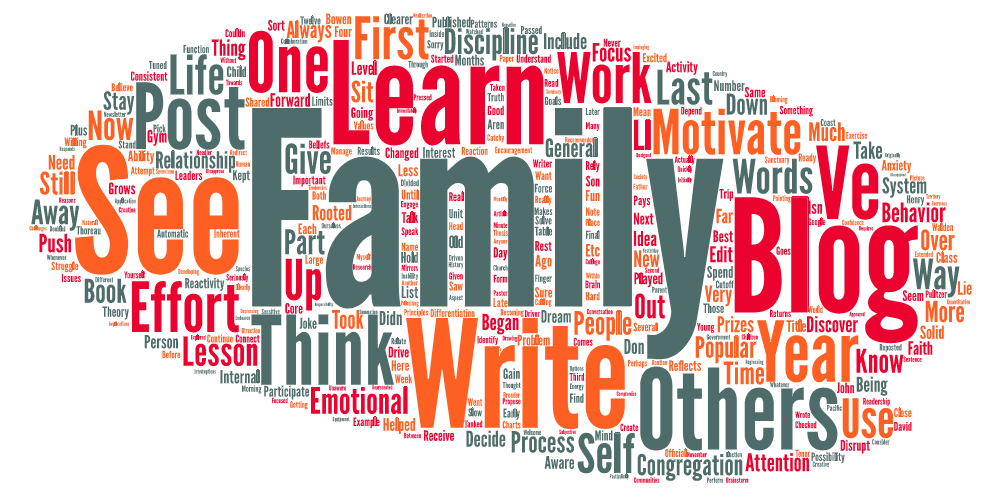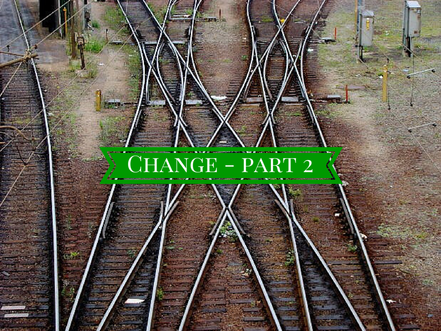71,450: the number of words I published over the last twelve months. 71,450 words! I seriously couldn’t believe it. Henry David Thoreau’s “Walden” had 114,634. So close, and yet so far away.
Now, I know what you are thinking. John, when do you think you’ll receive your Pulitzer? If only it were a quantitative exercise! I’m not aware of any prizes for blog posts. I checked. My Google returns included “how to give prizes away using a blog post.” I have no interest in giving away prizes. Sorry.
I decided to spend this first blog post of a new blog year (that’s not actually an official thing) writing a reflection on what I’ve learned and perhaps what I still need to learn.
Lesson #1
I’ve learned that I’m ready to write a book. I’ve dreamed of writing a book since I was young. The problem has always been me. I was never a solid writer. And by solid, I mean disciplined. I’ve learned the importance of being disciplined through a consistent effort and focus. I’ve learned that self-discipline pays off. I talk more about this in Lesson #4.
My discipline includes getting up early every morning to write. And for the most part, I was faithful. It helped me gain a level of confidence in my ability to brainstorm, write, and edit. And while I’m still developing and growing, the dream of writing books is, in my mind, a possibility. Stay tuned to learn more about the book idea.
Lesson #2
If you really want to force yourself to learn something, spend a year writing about it. I’m clearer in my understanding of Bowen Theory and its application. I was not able to see a year ago the things I see now. For example, I see now that we cannot solve issues in the broader relationship systems of government, communities, and congregations until leaders are willing to work on differentiation of self in their own family. The finger pointing, name calling, blaming, and the rest of the subjective thinking that people participate in reflects a level of cutoff in the family. The inability of leaders to sit down at a table and create a compromise rooted in collaboration mirrors the struggles of their own families. If you can’t sit down with your family (and the extended family) to work out problems, you sure aren’t going to be able to do it in other relationship systems! (See, this last sentence is a good example of why I need to be more disciplined in my writing.)
Lesson #3
I have no idea what makes a blog popular. #Truth. I thought it was the number of words. That didn’t hold up. I took a blogging class that recommended using catchy titles. That didn’t seem to work either. I propose that my most popular blog posts were just clearer and represented my best thinking. So, here is a list of the ones that were “off the charts” so to speak.
Welcome to Thinking Congregations
This was my first blog post (which I reposted last week). People were excited and interested to see what I was up to. For the next four months, my readership tanked. Not a joke. It was sort of depressing. But I kept pushing forward. I’m not going to lie; the words of encouragement were helpful. Plus, I decided I’d give it a year. So, I pressed on.
How to Decide to Be a Sanctuary Congregation
Congregations are not only divided about becoming a sanctuary congregation, they don’t know how to engage in a conversation about it that isn’t polarizing. Several of you shared that this post was helpful.
6 Things to Consider Before Taking a Stand
This was an attempt to use a creative title (from that one blog class I took), which appeared to work at first. It was also the first blog post to include a picture of me from a family trip to the Pacific Coast. For whatever reasons, it was a popular blog.
And the most popular post was:
Are We Regressing?
I originally published this on November 13, 2016, and it immediately doubled my readership. People read it and shared it all over the world. I wrote it just after the election, about the tenor of the country. It was very popular. I reposted it later in the year with the same results. It seemed to connect with all of you in important ways, particularly those of you who think about Bowen Theory and our society.
Lesson #4
What goes into an effort to write a blog? Writing, like many any other activities, can be an effort for self. While others may participate in the editing process, the hard work of writing requires self-discipline. Inherent in this effort is the ability to depend less on the motivation of others, to identify an internal drive, and to manage one’s reaction to the reactivity of others.
First, becoming less motivated by others. While encouragement is useful at times, it has its limits. Anyone with children knows that, while initially, it may be fun to motivate a child to do a new activity, it quickly grows old if the parent continually motivates a child to perform routine behaviors. We may be unaware of how much we depend on the motivation of others or how others rely on our motivation. Yesterday at the gym I watched a very large father struggle to motivate his very large son to use the gym equipment. Motivation is best when it comes from within.
Second, identifying an internal drive. I don’t know where it comes from in the brain, this internal driver that gives us the life energy to push forward. I think our options in life are to focus our attention on others, focus our attention on ourselves, or find a way to do both without impinging either.
Third, managing one’s reaction to the reactivity of others. Whenever one attempts to do an activity that is more about the self, the relationship system always responds. It’s designed to do this because it is sensitive to the emotional attention it receives from others. If you redirect your emotional attention away from the family and towards the self, the family takes notice and will often disapprove in the form of interruptions, being needier, drawing attention, etc.
One Final Note
It took me several years to get to a place of consistently writing every day. This from a person who was always last minute in writing that college paper, or seminary thesis, or that monthly church newsletter article from the pastor! I was always motivated by the negative implications of being late. But this blog is different. What changed?
I changed. It’s taken time, but I’ve changed. It was a slow process that went something like this:
- It began with the realization (thanks to Bowen Theory) that all families function as an emotional unit with each person playing a part.
- Anxiety is real, not inside a person’s head, but in between people and the ways they relate to each another. The summation of the interactions in a given family is the emotional process.
- People, in general, have limited awareness that most of our behavior is driven by reactivity to anxiety, and the way anxiety is played out in the behavior of others.
- I began to see how this was playing out in the family.
- At first, I could only see how others were participating in it. I was not able to see my part.
- I began to research my family history, with an effort to understand the emotional process that has been passed down from generation to generation.
- Over time I discovered that the way I function is rooted in the automatic behaviors that were passed down from one generation to the next. I saw patterns.
- I began to see my part in the patterns of the family emotional process.
- I started to take responsibility for my behavior. Disrupting my automatic tendencies. Pushing forward with efforts rooted in differentiation.
- I started to think about life principles, core values, beliefs, and goals.
- I worked to stay focused on my life principles, core values, beliefs, and goals while at the same time staying connected to the family. I worked not to let my effort disrupt my relationship with others and not to let my relationship with others disrupt my life direction.
- I continue to discover as much of this as I can in every aspect of my life.
It has been a seventeen-year journey resulting last year in the creation of Thinking Congregations. There is still so much to learn and discover about myself, my family, the human as a species, natural systems, and faith. I now see clearly the challenges that are inherent in this endeavor. But I also see the enormous possibilities. There is so much exciting territory that is yet to be explored and discovered! For those who are willing to pick up this effort, you will not be disappointed!









 RSS Feed
RSS Feed